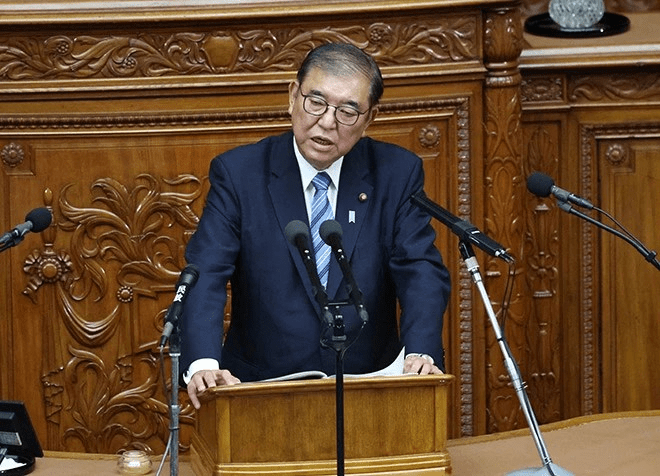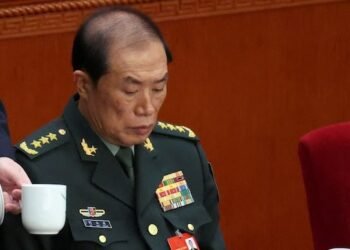Japanese Prime Minister, Shigeru Ishiba has delivered a policy speech in the Lower House of parliament.
He stressed cooperation with opposition bloc, reflecting the fact that he is now in charge of a minority government.
Speaking at the start of his speech after the extraordinary Diet session opened, Ishiba noted, “I will listen carefully to the opinions of other parties and work sincerely and humbly to reach the broadest possible consensus.”
Ishiba, 67, took office on October 1, 2024, following the resignation of unpopular predecessor Fumio Kishida and called snap elections soon afterwards.
However, the move backfired, with voters angry over corruption within the ruling Liberal Democratic Party (LDP) – which has governed almost non-stop for decades – and price rises.
His ruling Liberal Democratic Party and its junior coalition partner, Komeito, lost their majority in the Oct. 27 Lower House election for the first time since 2009.
Ishiba now needs to cooperate with opposition parties to ensure passage of key bills, including a supplementary budget proposal.
The LDP is already in discussions with the Democratic Party for the People on those matters.
In his speech, Ishiba clearly backed the DPP’s policy to raise the “1.03 million yen ($6,890) barrier,” the minimum annual earnings threshold subject to income tax.
Stressing that he “will incorporate excellent measures across party lines,” Ishiba said that the current “barrier” will be raised in next fiscal year’s tax reforms.
The DPP has also advocated a reduction in the gasoline tax.
Ishiba in his speech said that he “will study and reach a conclusion after reviewing all automobile-related taxes.”
He also indicated that he plans to double the amount of local development subsidies and will provide support for electricity and gas bills from January to March next year.
Looking at the past, Ishiba said the results of the Lower House election were a “rebuke of the political fund scandal (in the LDP) and the stance on political reform.”
He said he will advance discussions on abolishing policy activity expenses, which lawmakers receive from their parties. They are under no obligation to disclose how the funds are used.
Ishiba also called for the establishment of a third-party organization to audit political funds and a database of income and expenditure reports.“It is necessary to show a conclusion, including the necessary legislation, by the end of this year,” he said.
However, he did not mention abolishing donations from corporations and organizations, which the main opposition Constitutional Democratic Party of Japan and others are demanding.
In the area of disaster preparedness, Ishiba indicated he intends to double the pace of installing air conditioning at gymnasiums that serve as evacuation centers.
Ishiba Touches On Diplomacy
In the area of diplomacy and security, Ishiba stated that the Japan-U.S. security arrangement is the cornerstone of the alliance. “I would like to have frank discussions with President-elect (Donald) Trump to further raise the alliance to a higher level,” he said.
Ishiba did not mention his pet projects of revising the Japan-U.S. Status of Forces Agreement or creating an Asian version of the North Atlantic Treaty Organization (NATO).
He said that he will communicate with China at all levels, including leaders’ summits, to promote a “mutually beneficial strategic relationship.”
Ishiba also expressed his intention to work on reducing the base burden of Okinawa and other prefectures, and to accelerate talks to form a bill on active cyber-defense for early submission to the Diet.
The extraordinary session of the national Diet will continue for 24 days until December 21, 2024. A question period for party leaders will be held from December 2 to 4.
Both the Lower House and the Upper House Budget Committee meetings will be held on December 5 and 6, which will be attended by all Cabinet ministers.
READ ALSO: U.S. Oil Industry Prioritizes Economics Over Trump’s Drilling Push























